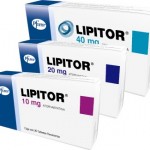 We have all heard the phrase “use it or lose it” as it pertains to muscle strength and even mental agility. This had led to a society that values exercise at the gym as much as exercising our brains with crossword puzzles and various mental challenges, in order to slow the aging process. But how does this relate to hearing? Over time, and through the normal course of aging, many of us experience a decline in hearing. This is most often a gradual process that we adapt to, until a loved one begins to complain that the TV is too loud or that they are tired of repeating themselves over and over.
We have all heard the phrase “use it or lose it” as it pertains to muscle strength and even mental agility. This had led to a society that values exercise at the gym as much as exercising our brains with crossword puzzles and various mental challenges, in order to slow the aging process. But how does this relate to hearing? Over time, and through the normal course of aging, many of us experience a decline in hearing. This is most often a gradual process that we adapt to, until a loved one begins to complain that the TV is too loud or that they are tired of repeating themselves over and over.
At this point we are not hearing everything that we should. This is a situation referred to as auditory deprivation. Our hearing relies on nerve endings in our inner ear and complex neural pathways to our brain to interpret the auditory input. When the sound signals are not coming in “loud and clear,” these pathways begin to atrophy and weaken. A number of studies have shown that earlier intervention with hearing aids allows more recovery of these hearing pathways, when compared to those who wait longer and are then never able to fully recover from the period of deprivation.
It is clear that early intervention helps to maintain healthy hearing; and this, in turn, allows us to continue to enjoy the people and activities we love. Seek help as soon as you notice a problem. Encourage you loved ones not to wait. Today’s hearing aids are comfortable, lightweight, very discrete and full of programmable options to customize to your lifestyle. Hearing is one of the joys of life.Don’t neglect it!
by Dr. Heather Schwartzbauer
Heather and her group Montgomery County ENT offer hearing evaluation screening. Call 301-774-0074 to schedule an appointment. Take Our Hearing Health Quiz – Click Here


